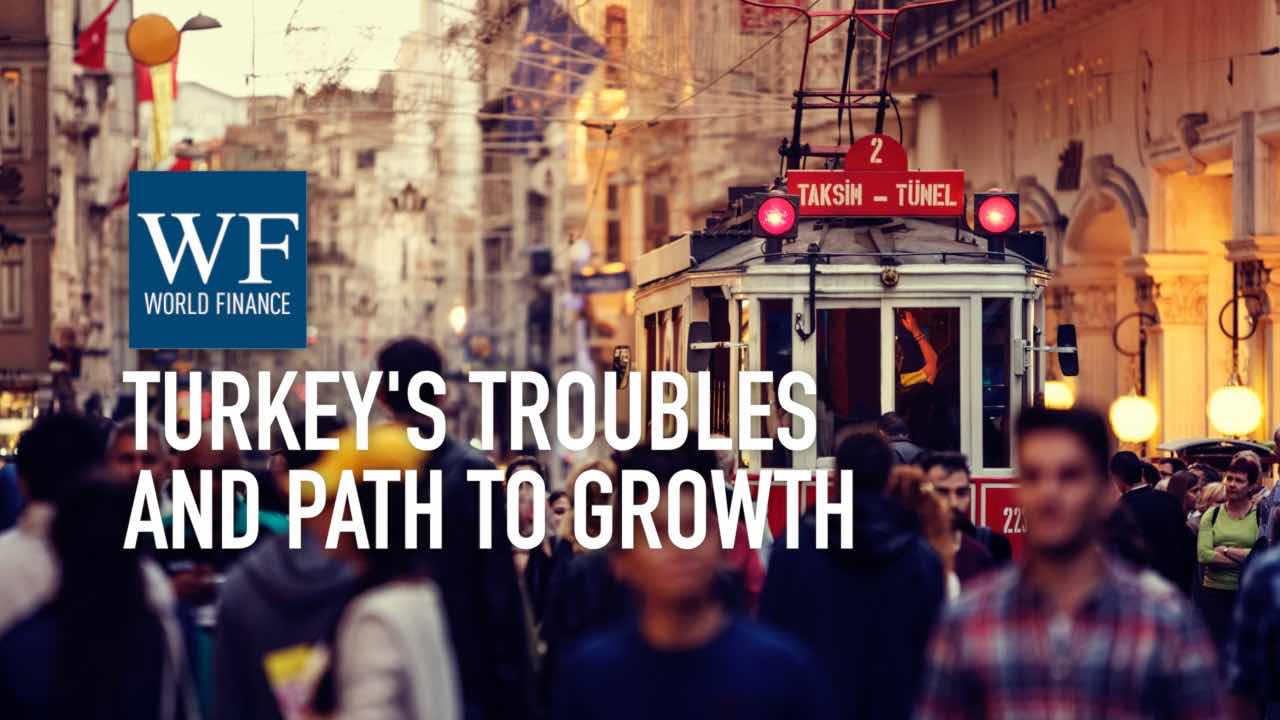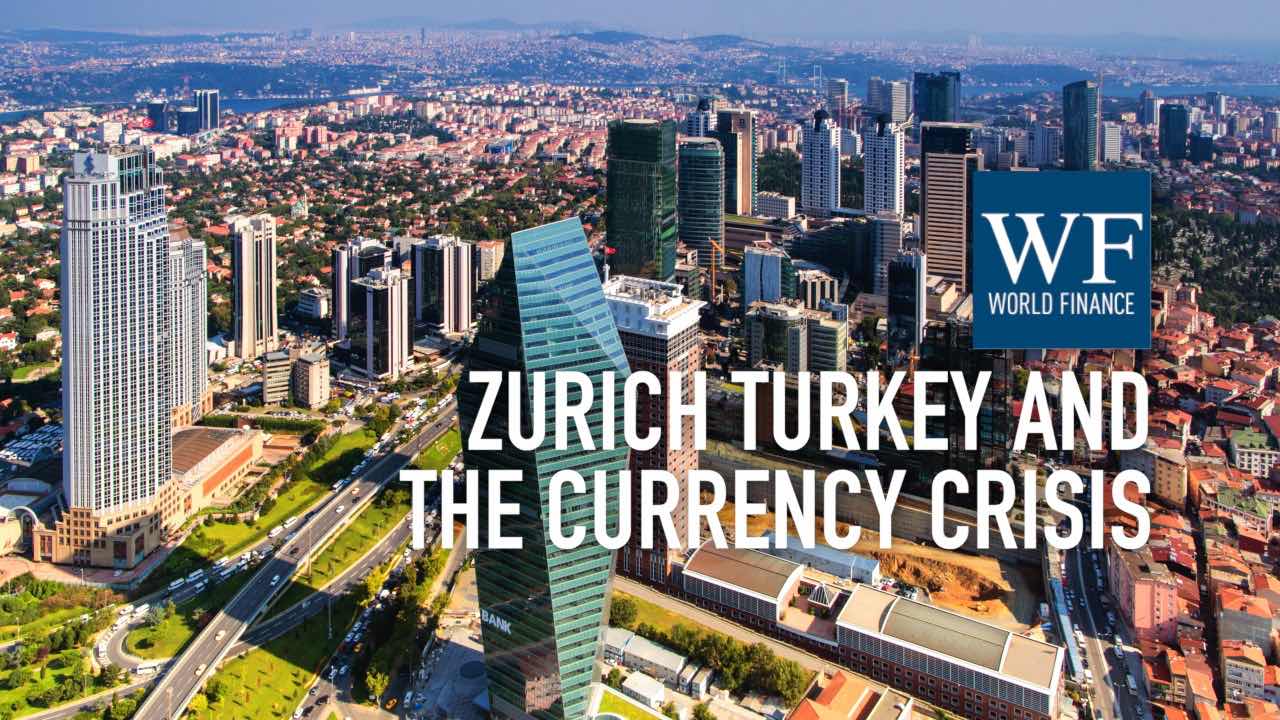Yilmaz Yildiz on the Turkish insurance sector | Zurich Sigorta | Video
World Finance talks to Yilmaz Yildiz, CEO of Zurich Sigorta, about how Turkey's economic growth and demographics have impacted on its insurance sector
Related:
Transcript
Thanks to a growing economy and favourable demographics, Turkey’s insurance sector is thriving. Yilmaz Yildiz, CEO of Turkish insurer Zurich Sigorta, talks about the surge in foreign investment for the industry, the effects of Turkey’s attempt to join the EU, and how geopolitical issues have impacted on trading.
World Finance: Yılmaz, what is driving this growth, and how has this impacted Zurich’s strategy in Turkey?
Yılmaz Yıldız: The growth in Turkey is based on two major impacts actually. One is the economy’s size and growth rate, and the other one is the favourable demographics. If you look at the Turkish economy’s size, it’s the sixth largest in Europe, and 17th largest in the world. And in a couple of years it will be a $1trn economy. So it’s quite big.
In terms of growth rates, after China and India it has been one of the fastest growing economies in the world, because the economic crisis of 2008 did not really impact negatively. Turkey got into the crisis with very strong fundamentals.
In terms of growth rates, after China and India [Turkey] has been one of the fastest growing economies in the world
On top of that, if you look at the favourable demographics, 50 percent of the population is under 30, population growth is still healthy; all these come together actually. The right macro fundamentals, the growth and the favourable demographics, to create a really strong momentum for the economy, and for the insurance market.
In Turkey, when we talk about insurance, in fact, it’s about a $20bn market, which is growing anywhere between 15-20 percent per annum, which is quite big. And if you look at the fact that the insurance premium to GDP is less than one percent, the penetration is so low, and we have huge growth potential. The combined is a very strong environment for further investment and more, let’s say, bright future for Turkey’s insurance industry overall.
World Finance: A lot of international companies have entered the Turkish market. How has it impacted the local industry?
Yılmaz Yıldız: That has meant a very big popularity in terms of investment fund direct investment into the Turkish insurance market. And if you look at the non-life insurance market, nine out of 10 is foreign-owned. And then if you look at the market as a whole, the foreign-owned players were eight; now it’s 35. The interest is there. And it looks like there will be more demand.
It’s both in non-life, but also strongly in life and private pension side of the business which is growing just as fast – if not faster. But I think the foreign investors will need to do more to get the returns they have targeted when they were initially entering the market. And that will take some restructuring, that will take some more sophisticated underwriting, better cost management and all of the basics to manage a good insurance company.
World Finance: With Turkey hoping to join the EU, how is the insurance market responding to this?
Yılmaz Yıldız: The move towards the EU – in fact for all of the sectors it meant a realignment with EU norms, regulations, and laws. And insurance has been just like that. We could actually classify those changes in a number of buckets. One is definitely the regulation: it’s one of the biggest implications of that. Laws like Solvency II is an important matter, which basically will require better risk management, risk adjustment, and probably higher solvency ratios, higher capital for insurance companies. Especially small to mid-size insurance companies will be impacted substantially, and some of the big ones as well.
That has meant a very big popularity in terms of investment fund direct investment into the Turkish insurance market
The second has been regulation on all company financials. Better, more strict reserve requirements. And that’s also very important, because insurance is one of the sectors in which your reserves will determine your financial health. So that part has been quite important.
The other one is mandatory insurance products. There have been, because of the changes and the alignment with the EU, many mandatory products that previously did not exist.
The fourth, just like every else, it’s the customer rights, and how insurance should be sold, and how customers should be informed before and after the sale, so that they know what they’re buying. And there’s no mis-selling or aggressive selling tactics in place. So the full picture is what we call enlightened regulation, which actually supports growth, while maintaining the health and sustainability of the insurance sector in the mid-to-long term.
World Finance: How have government initiatives impacted the sector?
Yılmaz Yıldız: The ones that I’ve mentioned have been quite positive actually. I very much support most, if not all, of the regulations that have been put in place.
First and foremost, the regulations have set the big picture in place, right? And that is the EU, the whole integration and alignment with the EU. So I think within that picture, what has been done have been very positive steps.
Overall I see that the regulation and the government has been very supportive of the sector, and it looks like it will continue to be so.
Iraq is a very big trading partner now
World Finance: How have geopolitical issues around Turkey impacted the industry?
Yılmaz Yıldız: Of course there are some very unfortunate things happening, especially in the Middle East. Still, if you look at our eastern neighbours – Syria, Iraq, Iran – the impact has been minimal. Iraq is a very big trading partner now, and now with the sanctions on Iran released a little bit, Turkey’s expected to benefit commercially from that. So overall minimal impact, really. And the economy is growing: we’re isolated from some of the unfortunate events happening in that region.
World Finance: And finally, how can the insurance industry support Turkey as a growing economy, and what is Zurich Sigorta doing about this?
Yılmaz Yıldız: Turkey is a manufacturing and services economy. So, what happens in the economy has profound impacts on insurance. If you want to export something or import something, it means marine insurance. If you want to build a factory it means property insurance, liability insurance, and many others. If you’re getting a loan from the bank, you get life insurance, but then you get home insurance. So if you look at what happens in the economy in general versus insurance, insurance is very much interlinked.
Employment is also a very big issue. More than 2-300,000 people are working in insurance. It’s usually the more educated that work there, so to that end insurance plays a very important role too.
Employment is also a very big issue. More than 2-300,000 people are working in insurance
So going forward, we think that we’re very well positioned in terms of our multi-segment, multi-product, multi-channel approach. And we’ve done quite a lot to restructure our company so that on one side we can compete among those 35 new global or international players that are in the market. And for us it’s growth that’s important; but even more important is to be consistently profitable, which we are working hard on, and we think we can deliver.
At the end, our mission is to be the preferred insurance partner for our customers, for our employees, and of course for our shareholders. And we think that we’re very well positioned to make the most out of Turkey’s high growth rates and favourable demographics.
World Finance: Yılmaz, thank you.
Yılmaz Yıldız: Thank you.

 Yılmaz Yıldız: Turkey’s troubles are ‘just a blip on the long-term chart’
Yılmaz Yıldız: Turkey’s troubles are ‘just a blip on the long-term chart’ How Turkey’s currency crisis could make Zurich Turkey more profitable
How Turkey’s currency crisis could make Zurich Turkey more profitable
